Join the Project Sidewalk team!
Our research group (Makeability Lab in the HCIL) is investigating new methods and tools for urban accessibility data collection and analysis. For Summer 2017, we are looking for talented, creative, and self-motivated undergrad research assistants with strong programming skills, technical background and an interest in urban accessibility to work on novel tools and applications for people with mobility impairments.
Potential Projects
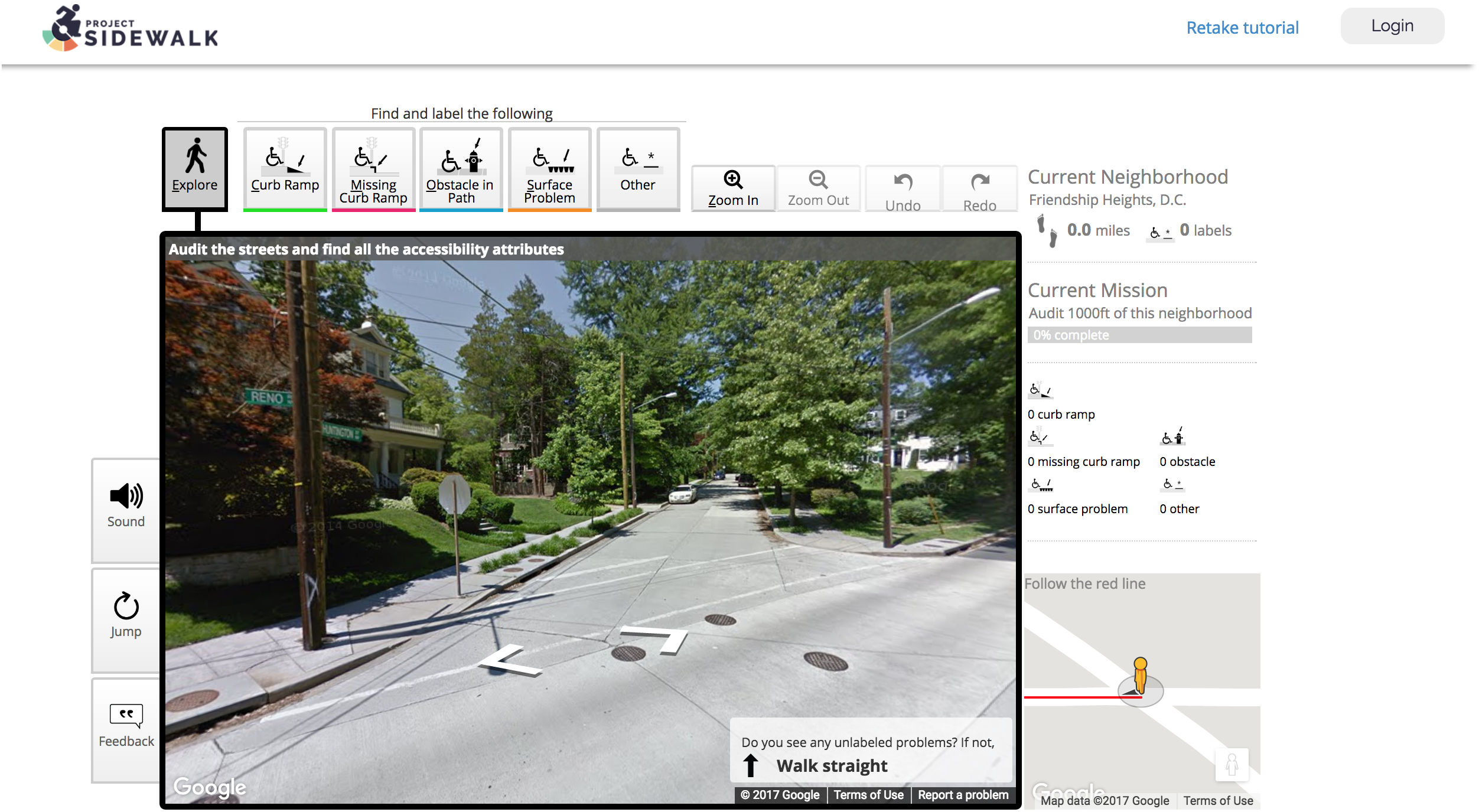
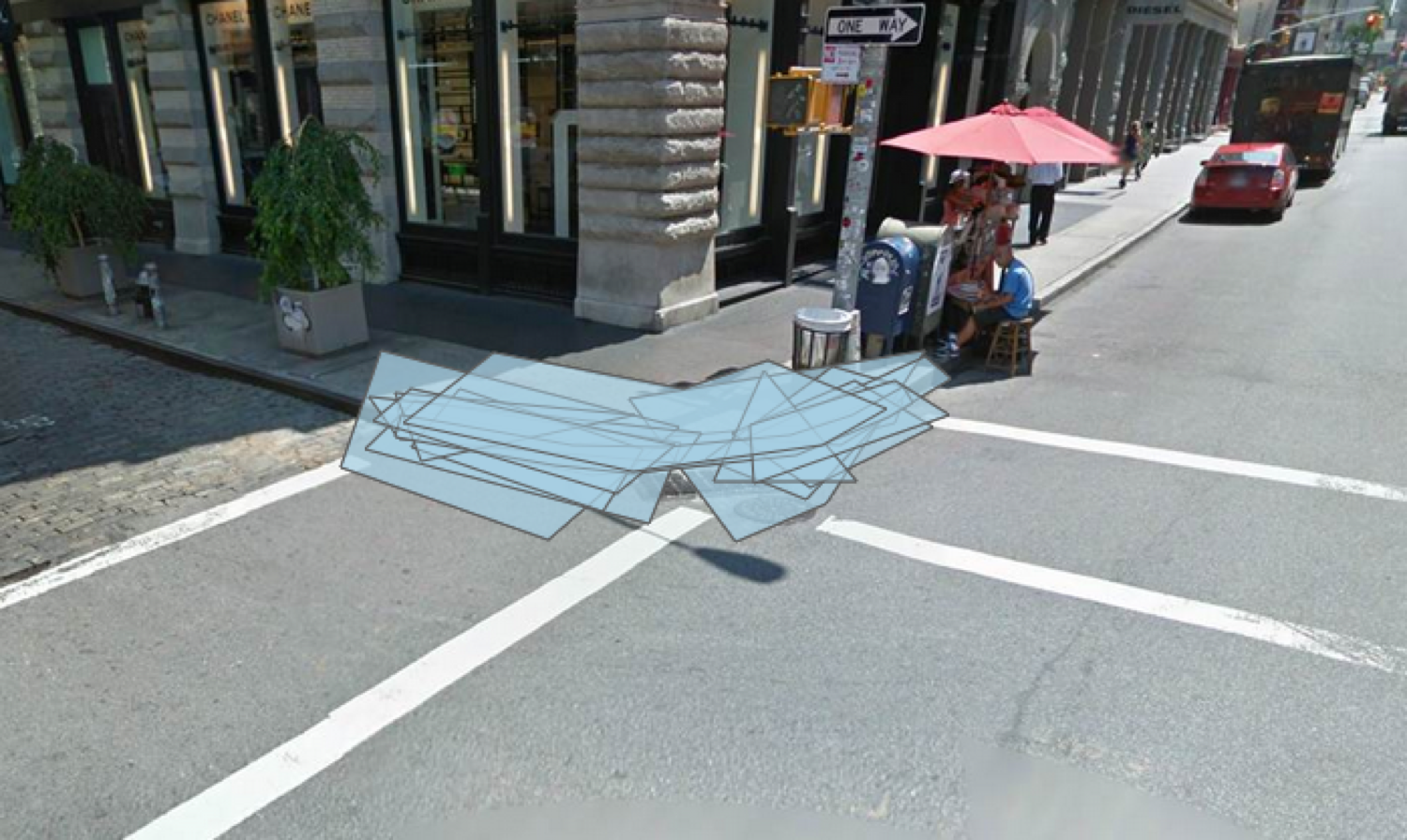
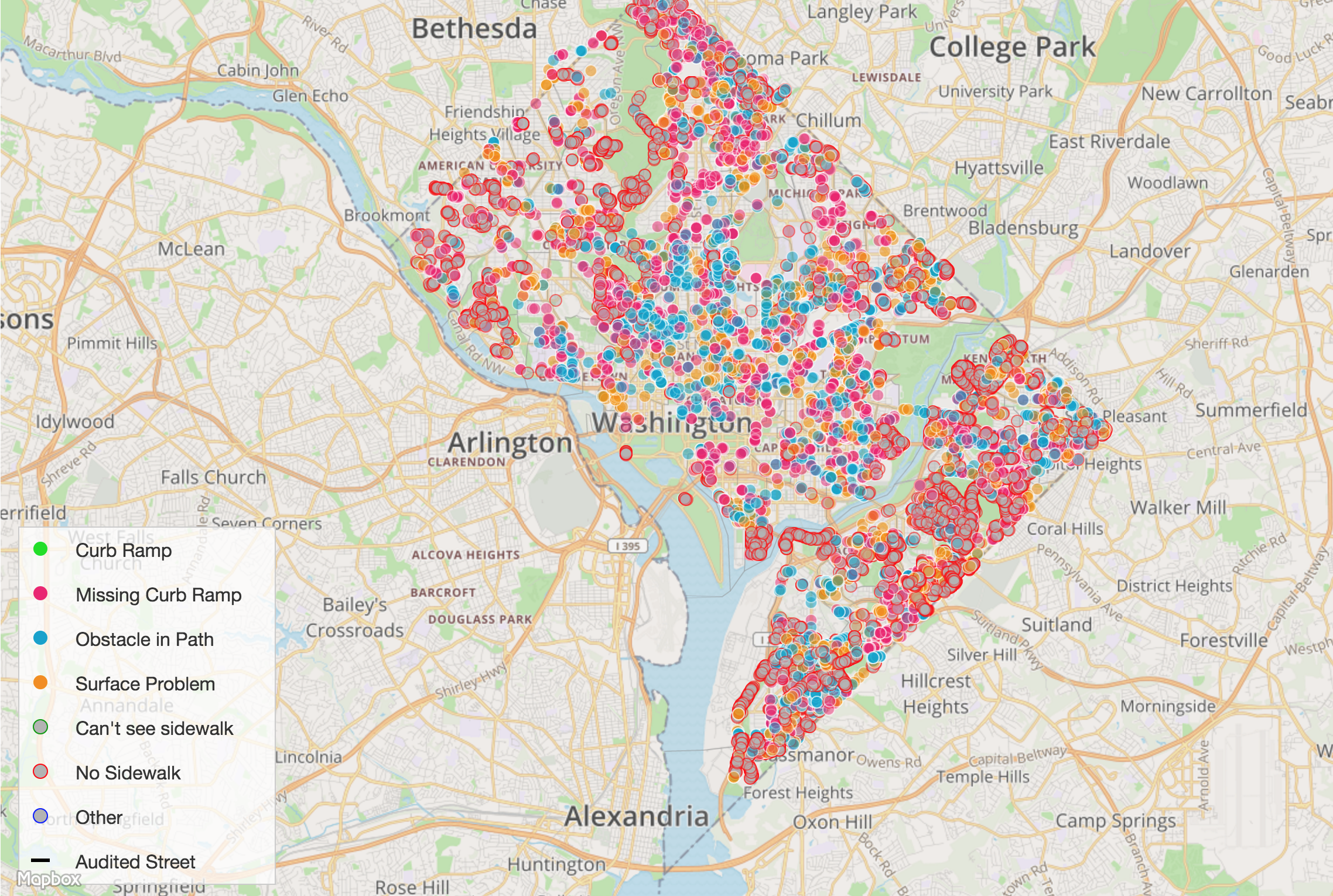
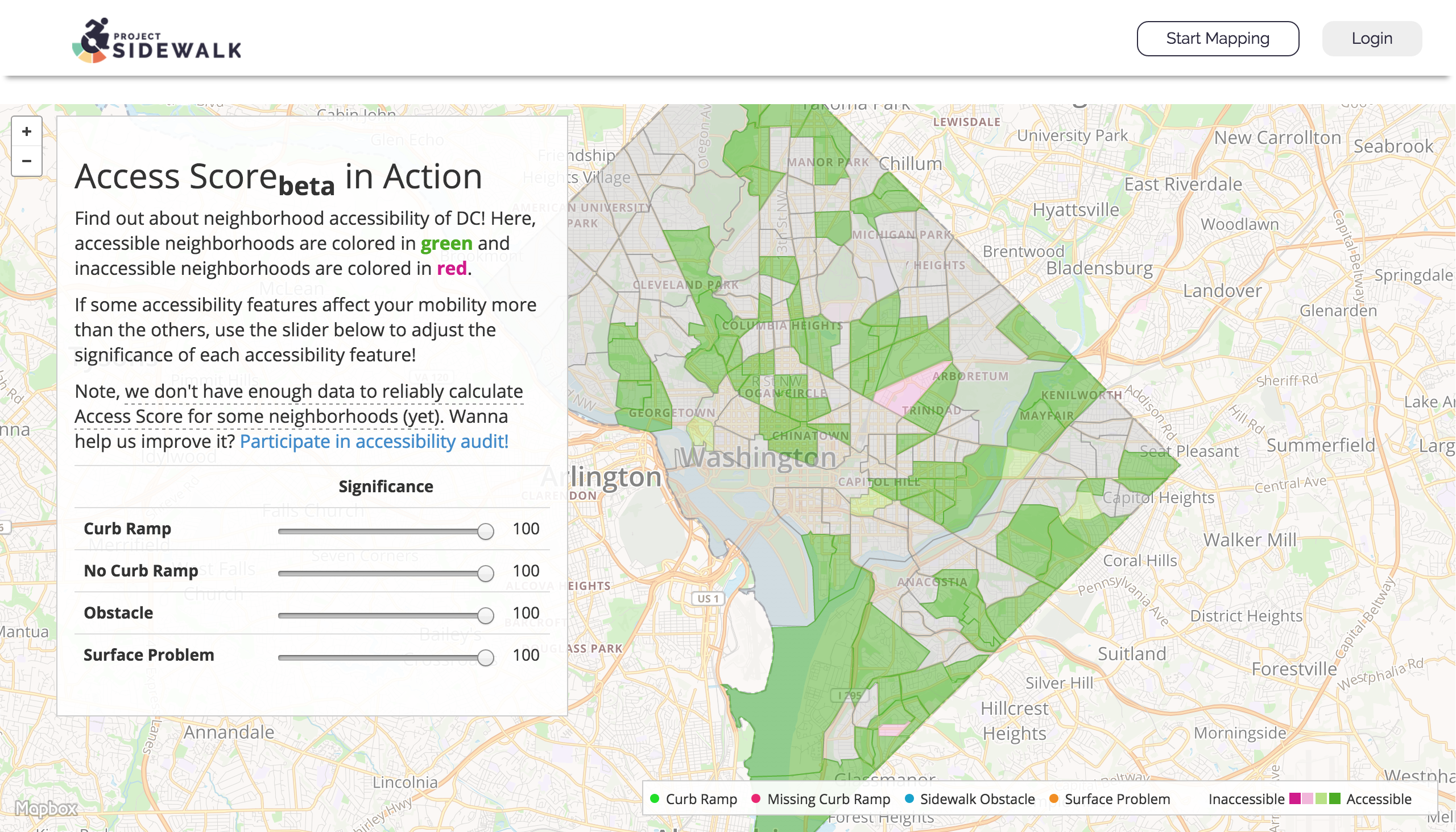
Required Skills
We are specifically looking for students who have one or more of the following skills and with a keen interest in expanding abilities in these areas:
-
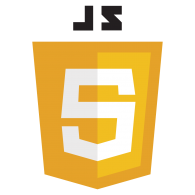 Experience designing front-end and back-end web components (e.g., Javascript, Java/Scala, D3, HTML, CSS, PostgreSQL)
Experience designing front-end and back-end web components (e.g., Javascript, Java/Scala, D3, HTML, CSS, PostgreSQL) -
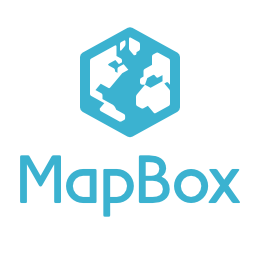 Experience in working with geographical data and developing map based tools (e.g., Mapbox, Leaflet)
Experience in working with geographical data and developing map based tools (e.g., Mapbox, Leaflet) -
 Experience prototyping iOS/Android applications (e.g., writing and deploying apps)
Experience prototyping iOS/Android applications (e.g., writing and deploying apps) -
 *Bonus* Experience in developing tools using crowdsourcing such as with Amazon Mechanical Turk
*Bonus* Experience in developing tools using crowdsourcing such as with Amazon Mechanical Turk -
 *Bonus* Interest in image processing with OpenCV and/or similar tools
*Bonus* Interest in image processing with OpenCV and/or similar tools -
 *Helpful* Interest in Data Science and comfort in using Python or other scripting languages
*Helpful* Interest in Data Science and comfort in using Python or other scripting languages
You will be working in the HCIL Hackerspace, will attend weekly research group meetings, and will join a team of other talented undergraduate and graduate students. By the end of the summer, we hope that you will create some exciting tools, help us submit a publication to CHI2018 and have an enriching learning experience! :-)
For best consideration, please read this page about undergraduate research and then send your CV and unofficial transcripts to manaswi@cs.umd.edu and CC jonf@cs.umd.edu by May 15th. Use the subject line: "Summer 2017 Intern: << Your Name >>". We will contact a subset of qualified candidates to setup interviews and request other materials.
Please feel free to forward this announcement.
About Project Sidewalk
Roughly 30.6 million individuals in the US have physical disabilities that affect their ambulatory activities; nearly half of those individuals report using an assistive aid such as a wheelchair, cane, crutches, or walker. Despite comprehensive civil rights legislation for Americans with disabilities, many city streets, sidewalks, and businesses remain inaccessible. The problem is not just that street-level accessibility affects where and how people travel in cities but also that there are few, if any, mechanisms to determine accessible areas of a city a priori.
Project Sidewalk has a two-pronged vision: (i) To develop scalable data collection methods for acquiring sidewalk accessibility information using a combination of crowdsourcing, computer vision, and online map imagery, and (ii) To use this new data to design, develop, and evaluate a novel set of navigation and map tools for accessibility. Our overarching goal is to transform the ways in which accessibility information is collected and visualized for every sidewalk, street, and building façade in America.
Try out our crowdsourcing tool at projectsidewalk.io and take a look at the code on github.
Publications on Project Sidewalk
The Design of Assistive Location-Based Technologies for People With Ambulatory Disabilities: A Formative StudyKotaro Hara, Christine Chan, Jon E. Froehlich
CHI 2016
Improving Public Transit Accessibility for Blind Riders by Crowdsourcing Bus Stop Landmark Locations With Google Street View: An Extended Analysis
Kotaro Hara, Shiri Azenkot, Megan Campbell, Cynthia Bennett, Vicki Le, Sean Pannella, Robert Moore, Kelly Minckler, Rochelle Ng, Jon E. Froehlich
ACM Transactions on Accessible Computing (TACCESS) 2015
Tohme: Detecting Curb Ramps in Google Street View Using Crowdsourcing, Computer Vision, and Machine Learning
Kotaro Hara, Jin Sun, Robert Moore, David Jacobs, Jon E. Froehlich
UIST 2014
Combining Crowdsourcing and Google Street View to Identify Street-level Accessibility Problems
Kotaro Hara, Victoria Le, Jon Froehlich
CHI 2013 Proceedings